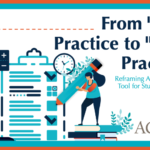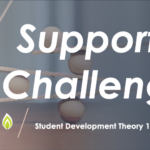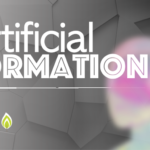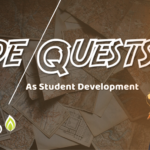The World Health Organization declared COVID-19 (the new coronavirus) a global pandemic yesterday. According to an NPR report, their intention was not to convey a sense of hopelessness, but rather to mobilize countries around the world to take action to stop the spread of the illness. Numerous organizations and local governments have taken measures to promote “social distancing.” The NCAA has decided to play march madness without fans, the city of Austin has canceled the South by Southwest conference, the Governor of the state of Washington has put a limit on gatherings larger than 250 in select counties, and numerous academic conferences (e.g. AERA; NASPA) have been postponed or canceled.
With such drastic measures being taken elsewhere in the country, it is no surprise that colleges and universities have been faced with tough decisions as well. Two days ago, Harvard announced its decision to transition to exclusively online instruction following spring break. Countless institutions have followed suit, many CCCU related schools among them (e.g. Gordon, Baylor, Wheaton, Pepperdine, Seattle Pacific, and more). Others have opted to continue classes while taking significant precautions (e.g. Biola, Spring Arbor, and others).
With so many campuses taking action to limit social interaction, what does the rest of the semester look like for those of us whose work depends on social interaction? Without students around, our offices will be as quiet as the library during summer. This is weird for those of us who thrive on student interaction. It may be tempting to throw your hands up and declare coming into the office a waste of time. As much as you can, avoid such a temptation. With significantly fewer administrative aspects of our work, what will fill our time?
Here are a few suggestions to get the conversation started, but I hope it is just that—a conversation starter. Continue to discuss area-specific ideas in your collaboratives and institutional staff teams.
1) Pray
As with any crisis, it is tempting to move beyond prayer to other practical tasks. It is true, there is no shortage of practical tasks to get done in the days ahead, but before we do, let us take time to pray for our communities. There are nearly unlimited things to pray for, but here are a few ideas to get us started:
For Students
- For safe travel, and the means to adjust their plans as needed
- Lament for lost time together on campus, especially for seniors in their final semester
- Provision for students and their families as they adjust
- For peace and trust in the Lord amidst uncertainty
- For humility to ask for help as needed.
For Faculty
- Provision of time and patience to learn new systems for online instruction
- For grace and patience for themselves and their students as they transition to new forms of instruction
- For humility to ask for help as needed.
For Staff
- For a generous spirit to look for opportunities to serve
- For peace and trust in the Lord amidst uncertainty
- For humility to ask for help as needed.
For Senior Leadership
- For wisdom and courage to do what is necessary to care for our campus and local communities
- For faith in the provision of God to fulfill his purposes
- For grace and patience for themselves and others as they oversee a myriad of new policies and systems.
- For humility to ask for help as needed
2) Maintain connection with students
With many students now living away from campus, it might seem like summer came a few weeks early and our work in student development is done for the year. I would encourage us as an association to avoid such thinking. The nature of our interaction with students will change, but it does not have to cease. In fact, this situation may provide an opportunity to go deeper with our students.
Fortunately, we are well into the year, and thus, have had time to form relationships with students under our care. Almost certainly, this foundation provides enough “buffer” to survive a transition to new forms of communication and new topics of discussion. Think intentionally about what opportunities this new context provides. Does this open up conversations about the students’ home life, hoping/trusting in the Lord, a narrower focus on development aside from the typical conditions of our interaction?
Here are a few suggestions:
- Take the time to write and exchange handwritten notes with students (pen-pals!)
- Consider regular zoom/skype/facetime calls with students as a group or as individuals
- Are there imaginative ways to create and cultivate community for our students?
- Which students might need special contact in this new format of education?
3) Make the most of quiet offices as a staff team
Although it is not actually summer, consider using the extra time for some extended professional development. I’d like to offer two initial ideas to jumpstart your thinking:
First, consider selecting and reading a book or collection of articles as a staff team. Perhaps you could grab last year’s edition of Growth off of your shelf and read through it systematically as a staff team. Consider both the global and local ramifications of each of the articles.
Second, take this time to re-imagine your work. In 2018, Dahlvig and Beers published an article suggesting that student development staff are asked to do increasingly more with less. With significantly less to do for the remainder of the semester, perhaps now is the time to take a step back and re-assess your individual and our collective work. My favorite prompt for this type of reflection is the classic, “stop, start, and continue.”
a) What do we need to STOP doing in our work?
- Have we gotten into particular patterns that are unsustainable?
- Are there traditions and patterns of thinking that are no longer useful that we can rethink or remove?
b) What do we need to START doing in our work?
- How can we recommit to modeling a biblical understanding of sabbath rest for our staff teams and our students?
- What biblical, theological truths do we need to start applying to our work? How do we actually, practically go about enacting such an application?
- What lines of communication do we need to open up between our departments that would help share the load?
c) What do we need to CONTINUE doing in our work?
- How can we continue to love our students with the steadfast and sacrificial love of Christ?
- How can we continue to develop and update policy to best serve and love our students?
As you reflect individually and with your staff teams, again, consider sharing your reflections with the larger ACSD community through collaborative groups or written pieces for ACSD Ideas.
4) Look for ways to serve the institution in new ways
We are members of a larger community and now is a great time to put any potential divisions aside and look to serve one another. Take some time to think about how this bizarre situation is affecting colleagues in other divisions of the institution.
Many of the faculty are being asked to transition their courses to an online setting for the first time. This will prove to be a significant challenge for many given the fact that much of their pedagogy was intentionally designed for in-person learning. How can you care for them and perhaps offer any expertise you may have related to such a task?
Senior leaders will continue to face important decisions in the days ahead, many of which cannot be separated from the already financially tenuous future of our institutions. How can you support them and help lighten their load?
Students will face new struggles and challenges as a result of this change. We need to be prepared to care for them with humility, grace, and flexibility. Some may potentially lose out on income from an on-campus job—is there a way they can continue working from afar? Some will miss the benefits of campus services upon which they were relying—how can we mobilize these services for students now living off-campus?
—
The first and fourth recommendations are perhaps the most important because a heart of prayer and a commitment to humble service prepare us to think beyond ourselves. Doing so prepares the way to love and care for those around us. May we continue to do just this, care for one another amidst the uncertainty of the days ahead. No matter the short- or long-term effects of COVID-19, we can rest assured that God is seated on his throne, unsurprised by the comings and goings of his creation. May we remember that our hope lies beyond this world in such a way that enables us to take up the work God has given us to do within the world with confidence and love.






